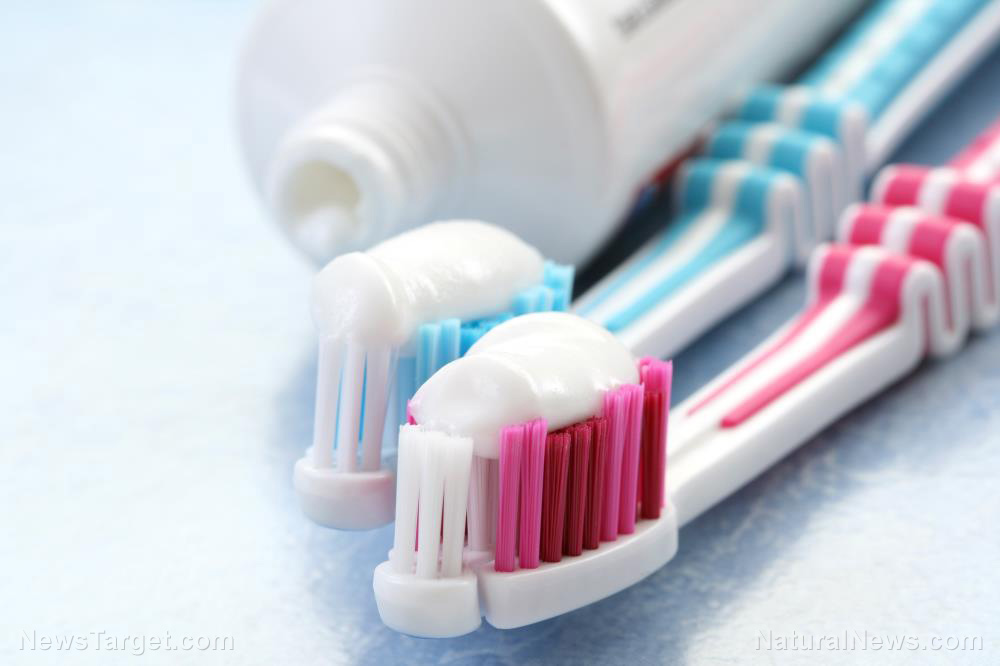Musk mallow seeds can protect the brain against degeneration caused by fluoride toxicity
01/05/2021 / By Evangelyn Rodriguez

Abelmoschus moschatus, commonly known as musk mallow, is a flowering plant native to East Asia and Northern Australia. It belongs to the same genus as okra, a flowering plant whose seed pods are eaten as a vegetable. Musk mallow is a multipurpose plant: Besides being an ornamental, it is also cultivated as a source of food, medicine and food-grade essential oil.
Musk mallow seeds are often used to flavor food and liqueurs. When roasted or fried, they are said to taste the same as sesame seeds. These are also used medicinally and are reported to have diuretic, anti-inflammatory and stomachic properties. Traditional healers often use musk mallow seeds to make natural remedies for a wide range of ailments, which include muscle spasms, bad breath, prickly heat, fever and dental cavities.
In a recent study, researchers at Osmania University in India explored the neuroprotective properties of musk mallow seeds. Previous studies have found that musk mallow seed extracts exhibit potent antioxidant activity and can thus reduce oxidative stress. Oxidative stress is heavily involved in the degeneration of neurons that leads to memory impairment and serves as a key feature of neurodegenerative diseases like Alzheimer’s.
The researchers reported their findings in an article published in the International Journal of Green Pharmacy.
Musk mallow seed extract can reverse the negative effects of fluoride toxicity
Fluoride is a mineral that’s naturally present in the environment. It can be found in air, water, soil, rocks and plants and is commonly used in dentistry. While fluoride is useful for a variety of things, exposure to high concentrations can negatively affect various soft tissues, including the brain, heart and kidneys. High levels of fluoride can also be detrimental to the dental and skeletal systems of humans.
One of the things fluoride does is trigger oxidative stress, which is defined as an imbalance between the amount of antioxidants and harmful free radicals inside the body. Oxidative stress plays a central role in the development of many chronic diseases, including Alzheimer’s and Parkinson’s disease. High levels of fluoride can also alter neurotransmitter levels and induce histological changes in the brain.
To determine if musk mallow seeds can protect against the damaging effects of fluoride, the researchers induced neurohistological changes in the brains of rats using sodium fluoride (NaF). They then assessed how treatment with musk mallow seed extract altered certain parameters, such as cell shape, cell size, myelin degeneration and the levels of the neurotransmitters, gamma-aminobutyric acid (GABA) and aspartate. They also observed changes in spatial navigation, learning abilities and the levels of natural antioxidants, such as glutathione peroxidase (GSH-Px) and superoxide dismutase (SOD).
For their experiment, the researchers first divided pregnant rats into six groups with five members each. They gave the control group normal tap water, while the fluoride group received 20 ppm fluoridated water. The third group received NaF (20 ppm) + musk mallow seed aqueous extract (AMAE), while the fourth group received NaF (20 ppm) + an ethanolic extract (AMEE). The fifth and sixth groups received only AMAE and AMEE, respectively. Treatment for all groups lasted for 51 days (21 gestational and 30 postnatal days (PND), beginning on Day 1 of pregnancy.
On PND 1, 7, 14, 21 and 30, the researchers analyzed the brains of rat pups to determine antioxidant, GABA and aspartate levels. They also conducted behavioral studies on Days 21 and 30. The researchers found that NaF treatment decreased the rats’ learning abilities and the activity of SOD in their brains while increasing GSH-Px activity. GABA and aspartate levels also increased. GABA, aspartate and myelin all play crucial roles in brain maturation.
Meanwhile, histopathological examination of the rats’ brains revealed that NaF decreased the formation of neural connections and networks, as well as dendritic branches. The branching out of dendrites — specialized extensions formed by neurons that receive chemical signals from other nerve cells — is important for nerve signaling as it provides increased surface area for incoming synapses. Synapses are what neurons use to communicate; dendrites are covered with these tiny protrusions that receive information and transmit electrical signals to the cell body of neurons.
The researchers also observed that NaF promoted the degeneration of the myelin sheath, the insulating layer surrounding nerves that allow electrical impulses to be transmitted efficiently. All these negative effects, however, were reversed by AMAE and AMEE treatment. AMEE treatment yielded better results than AMAE.
Based on these findings, the researchers concluded that musk mallow seed extracts provide neuroprotective effects against fluoride toxicity.
Sources include:
Submit a correction >>
Tagged Under:
alternative medicine, brain function, brain health, fluoride toxicity, herbal medicine, Herbs, musk mallow seed, natural medicine, neuroprotective, prevention, remedies, research
This article may contain statements that reflect the opinion of the author
RECENT NEWS & ARTICLES
COPYRIGHT © 2017 BRAIN NEWS





















